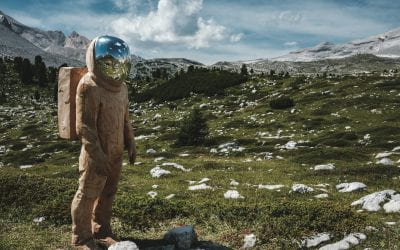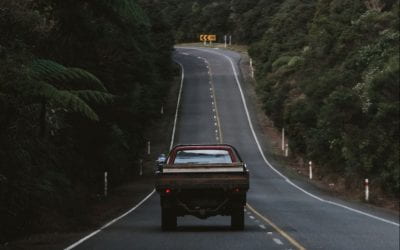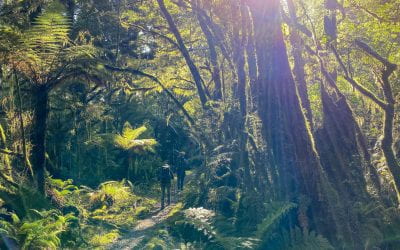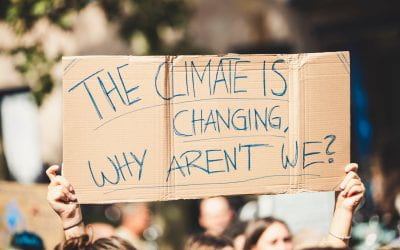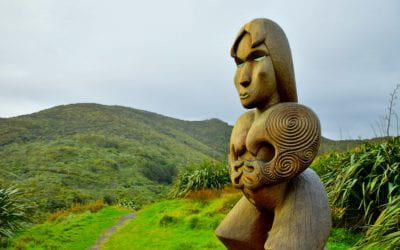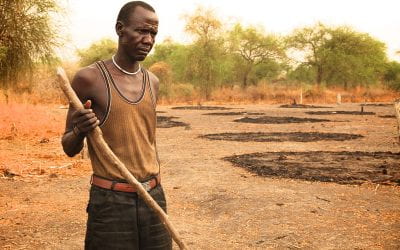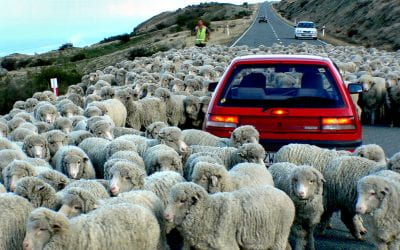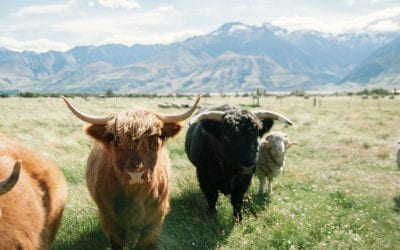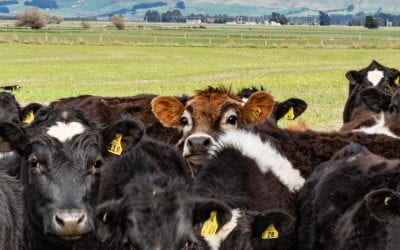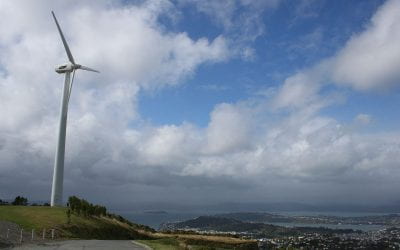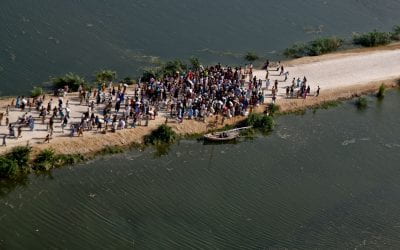
The Big Q
Questions – Ideas – Scholarship – Debates
Project for Public Interest Media

Politics & Society
What are the health benefits of decarbonising transport?
New research shows potential health benefits from decarbonising transport
Sustain: What are the future of cities in a climate crisis?
Brisbane City Flood 2013. Photo by ShepsSnaps, licensed under CC BY-SA 2.0 With over half the global population living in urban centres, a number which is projected to rise to around two-thirds by 2050, the relationship between cities and the climate crisis is...
What impact will New Zealand’s new national transport plan have?
The government’s new National Land Transport Programme will see much of the spending be driven into major highway schemes, and steered away from sustainable transport alternatives for the main cities.
AUKUS Pillar 2: Is non-nuclear membership possible for New Zealand?
“Pillar two” proposes non-nuclear membership to the AUKUS security partnership. Would the delineation be meaningful in practice?
Is New Zealand’s plan to revive offshore oil exploration out of step with global demand?
The government plans to reopen New Zealand’s territorial waters to oil drilling. This flies in the face of projections that demand for oil could peak as early as this decade.
From Gallipoli to Gaza: Should the Anzacs be remembered as a ‘coming of age’ story or as a lesson for the future?
The question of why New Zealand soldiers ended up on Turkish beaches in April 1915 is typically not part of Anzac Day commemorations. What lessons do these silences hold?
Science & Technology
Sustain: What role can seaweed farming play in the fight against climate change?
AgriSea CEO Clare Bradley and Tane Bradley (AgriSea CIO) inspect a seaweed harvest on a New Zealand beach. ©AgriSea. With increasing interest in aquaculture as an alternative to land-based agriculture, Dr Pauline Herbst speaks to Prof Andrew Jeffs, from the Institute...
Could one small step for supply chains mean one giant leap toward sustainable space exploration?
Without proactive leadership on environmental sustainability, the New Zealand space industry risks losing competitive advantage in a global space market with increasingly environmentally conscious customers. Shedding light on supply chains is the first step.
Sustain: What are the future of cities in a climate crisis?
Brisbane City Flood 2013. Photo by ShepsSnaps, licensed under CC BY-SA 2.0 With over half the global population living in urban centres, a number which is projected to rise to around two-thirds by 2050, the relationship between cities and the climate crisis is...
Sustain: How can nature guide our remedies for climate change driven flooding?
Maria Armoudian discusses nature-based solutions to flooding with Gary Brierley and Tim Welch.
Planet + People vs Plastics
On Earth Day 2024, Ngā Ara Whetū partnered with Te Aka Mātauranga Matepukupuku, the Centre for Cancer Research, to discuss the ubiquitous presence of plastics in our environment, and the impact they are having to the land, sea, air, animals, and on our own health and well-being.
Is the Ocean the Key to New Zealand’s Climate Change Battle?
New Zealand explores ocean strategies for carbon neutrality, considering kelp farms, coastal wetlands, and marine carbon removal for climate goals and risks
Business & Economics
Sustain: What role can seaweed farming play in the fight against climate change?
AgriSea CEO Clare Bradley and Tane Bradley (AgriSea CIO) inspect a seaweed harvest on a New Zealand beach. ©AgriSea. With increasing interest in aquaculture as an alternative to land-based agriculture, Dr Pauline Herbst speaks to Prof Andrew Jeffs, from the Institute...
Is Uber-style surge pricing the answer to Auckland’s congestion nightmare?
Can Uber-style surge pricing ease Auckland’s traffic chaos and save millions in congestion costs? Tim Hazledine from the University of Auckland explains.
Could one small step for supply chains mean one giant leap toward sustainable space exploration?
Without proactive leadership on environmental sustainability, the New Zealand space industry risks losing competitive advantage in a global space market with increasingly environmentally conscious customers. Shedding light on supply chains is the first step.
Will the Clean Car Discount’s Reversal Shift the Gear on SUV and Ute Sales in NZ?
Explore the potential impact of New Zealand’s Clean Car Discount reversal on SUV and ute sales, road safety, and emissions reduction. Insights from Timothy Welch, University of Auckland.
What are donor-advised funds and how are they turning the US culture wars into charity?
DAFs channel huge amounts of cash to ‘culture war’ groups – anonymously. Why do people get tax breaks for using them?
Can tourism thrive without the environment picking up the bill?
Discover the dilemmas of New Zealand’s resurging tourism industry, balancing economic benefits with environmental and cultural preservation for a sustainable future.
Arts & Culture
Will AI Become the Arbiter of Music Copyright Infringement?
Musicologist Dr. Patrick Savage examines the effectiveness of algorithms in detecting music plagiarism and their role in copyright infringement cases.
The fall into the abyss
In April 1909, two waves of massacres shook the province of Adana, located in the southern Anatolia region of modern-day Turkey, killing more than 20,000 Armenians and 2,000 Muslims.
Does AI work by exploiting our unwaged labour?
Fabio Morreale exposes the exploitation of AI training through our interactions, raising ethical concerns and advocating for change.
Who are you calling a Nazi?
While it is all too easy and comfortable to indulge in our Nazi fascination to demonise our enemies, maybe we should still the media chaos just for a moment and reflect. Who are you calling a Nazi? And why?
Can NZ step up and address Earth system decline?
The Government of Aotearoa New Zealand has a unique opportunity to demonstrate leadership and action by changing its laws to conform with the laws of nature, writes Klaus Bosselmann. Can NZ step up and help lead?
What cultural values belong in science?
The University of Auckland’s Julie Rowland examines the notion that education should be secular and devoid of any form of spirituality.
Ngā Ara Whetū
How does COP27’s loss and damage deal really look to the Global South?
After two weeks of fractious discussions, at the very last minute COP27 came up with an agreement on ‘loss and damage’ – providing financial assistance to poorer nations who are already facing the catastrophic impacts of climate change. But how long will it take for these words to translate into actions?
Why do social ties matter to climate politics?
Policy-makers frequently fail to communicate scientific knowledge about climate change effectively, with the result that targeted groups often reject potentially useful advice. Our research addressed New Zealand dairy farmers’ perceptions of climate conditions and their perceptions of climate science.
From farming to fermentation: Could New Zealand ‘brew up’ new foods to reduce agricultural emissions?
Addressing the problem of New Zealand’s agricultural emissions has mainly focused on technical fixes aimed at reducing methane and nitrous oxide produced by livestock and fertiliser and relying on voluntary agreements with the industry. But these measures may not result in substantial emissions reductions any time soon.
COP27: Breakthrough? Or an inadequate response to the climate crisis?
For 30 years, developing nations have fought to establish an international fund to pay for the “loss and damage” they suffer as a result of climate change. As the COP27 climate summit in Egypt wrapped up over the weekend, they finally succeeded. While it’s a historic moment, the agreement of loss and damage financing left many details yet to be sorted out. What’s more, many critics have lamented the overall outcome of COP27, saying it falls well short of a sufficient response to the climate crisis.
The cow in the room… A problem of production or consumption?
Techno-scientific solutions have been thrown at the problem of farm-based greenhouse gas emissions. It’s an economy in and of itself.
What should New Zealand do to commit fully to tackling climate change?
We need to invest in clean technologies and circular economies to build a sustainable, diversified economy. And that will also lessen our dependence on carbon-emitting industries, say leading Auckland academics.
COP27: Why can rich countries no longer ignore calls to pay the developing world for climate havoc?
Payments from high-emitting countries to mitigate the harm that climate change has caused in the most vulnerable parts of the world is finally on the agenda for discussion at a global climate change summit, more than 30 years after the idea was first articulated by delegates from small island developing states.
What can be expected from COP27?
The world’s leaders are gathering for another global climate meeting, this time in Sharm El-Sheikh, Egypt. Expect a bustle of promises and pacts from countries and companies. Expect pressure on states to support people who are most and permanently affected by climate change. Don’t expect much more, but equally don’t lay the blame solely on the United Nations.







